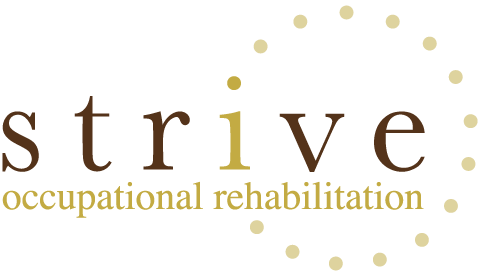By Laura Huygens, Rehabilitation Consultant – OT
Did you know that you can control 40% of your total happiness?
In Sonja Lyubomirsky’s book ‘The How of Happiness’, she explores how despite 50% of our happiness being attributed to genetic make-up and 10% to circumstances beyond our power, we can have an influence on 40% of our happiness.
Now this is all good and well, but in order to understand how to influence our happiness, we have to understand how our brain determines what happiness is.
For most people, happiness can mean having a good job, lots of money, cool stuff, love, and a fit body. However, research shows that even after someone got a promotion or bought a new house, their happiness was not sustained long-term.
The reason for this is because our brains work based on this term of ‘Miswanting’. This basically is the act of being mistaken about what and how much we will like something in the future. So why do we ‘miswant’? It is because our brains think in relative terms, not in absolutes. That is, we use reference points to help form our thoughts and judgements regarding how much we will like something.
For example, studies have shown that an Olympian who won a silver medal was actually less happy than the bronze medallist. This is because for the silver medallist, their relative term of happiness was having just missed out on getting the gold medal. Whereas for the bronze medallist, their relative term of happiness was having gotten a medal at all and therefore, they were really happy about being an Olympic medallist. So as you can see, it is our reference points that we use to base our judgements on what we think will make us happy.
Our brains also have another annoying feature where we adjust to our happiness quicker that we would like to admit. For example, you were just promoted at work and your salary is much higher than before. For the first few weeks, you may be overjoyed with the new feeling of earning that extra cash. However, within a few months, you’re already wishing you could earn just a little more money so you could buy whatever it is that you think will make you happy.
In order to maintain the joy we experience in our everyday lives, we can do a few things to boost our happiness and affect that 40%:
- Random acts of kindness – share some positivity with someone you don’t know by performing a random act of kindness. This could include complimenting a stranger.
- Social engagement – share experiences with others as studies show that people actually like you better when you talk about something you’ve done (i.e. a trip you went on) versus something you have (i.e. buying a new pair of shoes).
- Journaling/Mindfulness – by reflecting on our emotions, thoughts and bodily feelings in the present moment, we can move beyond whatever may be troubling us and find new meaning. Writing these things down can help unburden ourselves too!
- Savouring/Gratitude – taking note of how you are feeling when doing something you enjoy can help you be “in-the-now”. Similarly, writing down a few things that went well in your day can bring an immediate sense of joy.
- Setting meaningful goals (and sub-goals) – this provides a sense of structure and direction which in turn can improve your self-esteem, sense of self and confidence by providing a positive feedback loop when you achieve a small sub-goal towards your meaningful goal.
- Taking care of your body – this can be achieved by getting adequate sleep, meditation, exercise and eating a healthy and wide-variety diet. Remember, you can’t poor from an empty cup.
Try doing just one of these things for seven days and track your progress by writing down what you did each day. Next week, try another strategy and continue to track this as a way of forming long-lasting habits which can ultimately, target that 40% of your total happiness 😊
#StriveToBeMindful

 Stop multitasking!
Stop multitasking!